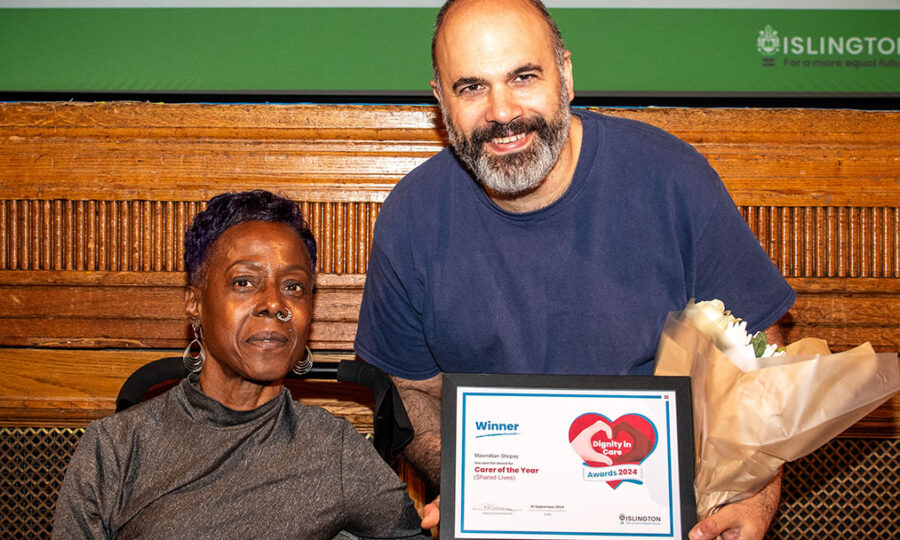In conversation with… Shared Lives carer Shopay

Shared Lives Islington is a flexible and community-based support service for adults and young people aged 16 and over, who need help due to disability, age, illness, or social isolation. Through the scheme, people are matched with a Shared Lives carer – a local person who welcomes them into their home and supports them like family. Shopay tells us about his experience
Why did you become a Shared Lives carer?
I genuinely believe in giving people a chance to live with dignity, purpose, and connection – especially those who have often been overlooked. My own life has been shaped by the kindness and opportunity I found in the UK, and I saw Shared Lives as a powerful way to give back.
But I didn’t want to work in care in a traditional sense. I wanted to open my home, heart, and way of life to someone who needed more than just services – someone who needed to feel part of something stable and real.
What does it involve?
I currently support two people through Islington and Haringey Councils. One is a young man who had been in foster care – he’s autistic, has learning disabilities, and has some health concerns. The other is an older gentleman living with mild depression and social isolation.
My role centres on creating a calm, safe, and structured home life – something that promotes autonomy, self-worth, and wellbeing. For example, I support meal planning, help with managing appointments and medication, and encourage healthy routines like regular walks and engaging in light tasks or social activities. But just as importantly, I offer companionship, emotional support, and the subtle scaffolding that helps people feel seen and valued in a family-style setting.
It’s not about doing things for someone, but with them – helping them grow in confidence, with decision-making, while retaining their dignity. Some days are quiet and grounding, others involve navigating big emotions or advocating for what’s right. But it’s always meaningful.
What does being a Shared Lives carer mean to you?
To me, being a Shared Lives carer is more than a role, it’s a calling. It’s about creating a home, not just providing a placement. It means offering consistency, compassion, and the chance for someone to grow, at their own pace, in an environment where they are truly seen and valued. It’s about building trust and encouraging independence, while also standing beside someone through life’s ups and downs.
What is your favourite thing about it?
My favourite thing is the relationships. Watching someone gradually come out of their shell, start to believe in themselves and take steps, however small, towards a fuller life, is deeply rewarding. I’ve had the honour of seeing individuals transform, not because of any grand gesture, but because they were given the space and support to simply be themselves. The Shared Lives model has such human depth. It respects both the carer and the person supported in a way that very few systems do.
Last year you received a Dignity in Care Award, which recognises individuals and teams who demonstrate a commitment to upholding the dignity of those receiving care. How did it feel to win?
Winning the Dignity in Care award was both humbling and affirming. It meant that the quiet work that’s often done behind closed doors, that often goes unseen, was recognised.
But more than that, it validated the ethos I’ve always held, which is that every person deserves dignity, no matter their background, behaviour, or circumstances. The award wasn’t just for me, it was for everyone who believes in the power of home, belonging, and second chances.
Interested in becoming a paid Shared Lives carer? Speak to the council’s friendly team: call on 020 7527 7661 or email sharedlives@islington.gov.uk
Or apply online today.
Latest Discover Islington blog
- Where British Sign Language meets community 24 February 2026
- In conversation with… Octopus Community Network 23 February 2026
- How Islington Council’s 2026/27 budget is making it happen 23 February 2026
- Opening minds, expanding horizons 20 February 2026
- Celebrate World Book Day with Islington Libraries 20 February 2026
- Family help at your fingertips 19 February 2026
